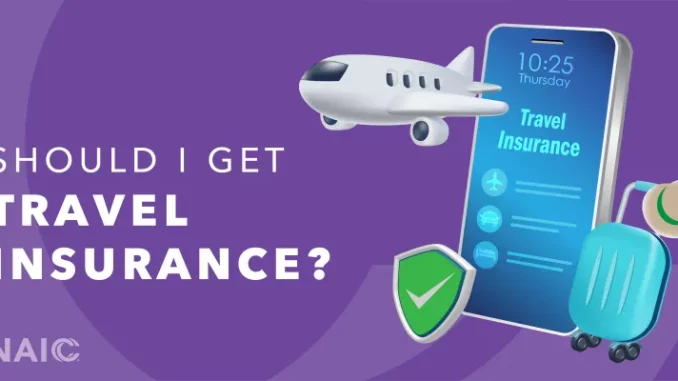
Traveling can be one of the most exciting experiences, whether it’s a leisurely vacation or a business trip. However, along with the excitement comes the unpredictability of travel. From flight delays to unexpected medical emergencies, there are many factors outside your control that could disrupt your plans. That’s where travel insurance comes in. In this post, we’ll dive into everything you need to know about travel insurance before your next adventure.
What is Travel Insurance?
Travel insurance is a type of coverage that protects you from unforeseen events that could affect your trip. It provides financial protection and peace of mind in case something goes wrong while you’re traveling. Travel insurance can cover various aspects of your trip, such as trip cancellations, medical emergencies, lost baggage, or even travel delays.
Why Do You Need Travel Insurance?
While travel insurance is an additional expense, it’s often a wise investment. The purpose of travel insurance is to provide a safety net that ensures you’re not left with massive out-of-pocket costs in case something unexpected happens. Whether it’s a medical emergency in a foreign country or an unexpected flight cancellation, having travel insurance can save you from a lot of stress and financial burden.
Types of Travel Insurance
There are several different types of travel insurance, each covering different aspects of your journey. Here are the main types:
-
Trip Cancellation Insurance: This is the most common type of travel insurance. It covers you if you need to cancel your trip for covered reasons like illness, a family emergency, or unexpected events.
-
Medical Travel Insurance: This provides coverage for medical expenses if you become ill or injured while traveling. It’s especially important when traveling abroad, where your regular health insurance might not provide coverage.
-
Baggage Insurance: If your luggage is lost, stolen, or damaged during your trip, baggage insurance can reimburse you for the cost of replacement or repair.
-
Travel Delay Insurance: This type of coverage reimburses you for expenses incurred during travel delays, such as hotel stays, meals, or transportation.
-
Emergency Evacuation Insurance: This covers the cost of evacuation in case you are in a dangerous or remote area and need to be transported to a medical facility or back home.
What Does Travel Insurance Cover?
The specific coverage depends on the policy you purchase, but most travel insurance plans cover the following:
- Trip cancellations or interruptions
- Medical emergencies
- Lost or delayed baggage
- Flight delays or cancellations
- Emergency evacuation
- Travel accidents
What Travel Insurance Doesn’t Cover
While travel insurance offers comprehensive coverage, there are some exclusions you should be aware of. Common exclusions include:
-
Pre-existing medical conditions: Most policies won’t cover expenses related to medical conditions you had before purchasing insurance.
-
High-risk activities: Some adventurous activities like skydiving or extreme sports may not be covered unless you purchase a specialized policy.
-
Non-refundable expenses: Some policies may not reimburse you for certain non-refundable expenses such as concert tickets or hotel bookings.
When Should You Purchase Travel Insurance?
Ideally, you should purchase travel insurance as soon as you book your trip. Some policies cover situations where you need to cancel your trip within a certain timeframe (e.g., 24 to 48 hours after booking). Buying insurance early also ensures you have coverage for unexpected emergencies that may arise before your departure.
How Much Does Travel Insurance Cost?
The cost of travel insurance can vary depending on several factors, including:
- The length of your trip
- Your destination
- Your age
- The level of coverage you need
On average, travel insurance costs between 4% to 10% of your total trip cost. While it may seem like an added expense, it’s a small price to pay for peace of mind.
How to Choose the Right Travel Insurance
Choosing the right travel insurance policy can be overwhelming, especially with the wide range of options available. Here are a few tips to help you choose the best one:
-
Assess your needs: Consider what type of coverage you need. If you’re traveling abroad, medical coverage may be a priority. If you’re going on a cruise, make sure your policy covers trip cancellations due to bad weather.
-
Compare policies: Take time to compare different policies, looking at what’s covered, the cost, and the terms of the coverage.
-
Read the fine print: Always read the policy details carefully to understand what is and isn’t covered. Make sure there are no hidden exclusions.
-
Check for 24/7 support: Good travel insurance policies provide round-the-clock customer service in case of emergencies.
What If You Don’t Have Travel Insurance?
While you may be tempted to skip travel insurance to save money, going without it can be a risky move. Without proper coverage, you could be left paying out of pocket for medical bills, lost luggage, or other unexpected expenses. A single medical emergency abroad can cost thousands of dollars, and a delayed or canceled flight can lead to costly hotel stays.